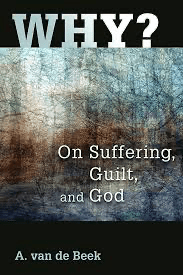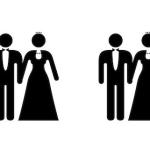“Why?” Part III, Chapter 16: “God Is Different”
This is another installment of my continuing series about the book “Why? On Suffering, Guilt, and God” by Dutch theologian Abram van de Beek (here vdB). Several readers of this blog are reading the book and I am slowing down my commentaries in order to allow everyone to catch up. Today’s installment will be a commentary on Chapter 16 “God Is Different” in which vdB pursues further his ruminations, musings, about the problem of God’s omnipotence and goodness—how to reconcile them in light of the horrors of human history.
On page 222 vdB says that “basic to the conflict between the omnipotence and goodness of God in the pastoral situation of human beings there is a philosophical notion of God.” It emerges again in this chapter that, like other Dutch Christian theologians, vdB is responding to a novel by Dutch author Martin Hart entitled “A Flight of Curlews” which poses the problem of evil for believers in God.
VdB is now hinting at the need for a “change in paradigm” in Christian theology. In light of the horrors of human history, “We have to go back to square one.” (225) He refers positively to two earlier theologians who said as much and attempted to do that: Karl Barth and Christoph Blumhardt. (The latter is well-known to students of Barth and Emil Brunner but not well-known to most Americans. He should be remembered.) In complete agreement with Barth and Blumhardt vdB says “We do not find [God]; he presents himself; he posits himself in his revelation, in Jesus Christ. Jesus Christ alone is the true God, and nothing or no one else. If we want to know who God is we must look to him.” (226) (Juergen Moltmann has said the same.)
According to vdB, a major difference between God and humanity is power-seeking and using. Humans seek power-over; “God does not lust for power.” (228) “God breaks [this] power by delivering himself up to humans.” (229) Also, “In the story of Jesus it is evident that suffering is not conferred by God; on the contrary he goes out to be with the suffering.” (230) And, “He [God] is not the Kaiser-God, he is the God of compassion. He is not the super-God who is approached most nearly by the Superman, but the God of Jesus Christ.” (231)
Now I detect that I am “hearing” the voice of vdB and not just vdB’s recounting of someone else’s view although his own is informed by Barth and Blumhardt AND Moltmann. In this chapter vdB engages with Moltmann’s theology of “The Crucified God” at length and seems to agree with much, if not all, of it. VdB says “If God is the suffering one, then the signs of his presence on earth are not to be found in power, beauty, and achievement. The signs of his presence are the oppressed. It is the suffering needy human who points to the true God.” (244)
After much interaction with Christian theologians who have posited God as future rather than as the all-controlling power of the past dominating history, controlling everything, vdB ends the chapter by saying “Whether one views history from the end of from the beginning, the free will of God remains determinative for how he acts.” (252)
My “take away” from this chapter is that vdB is exploring a new paradigm in the Christian doctrine of God that centers solely on the person of Jesus Christ including his suffering. The all-determining God who writes the script of history from beginning to end or from end backwards to beginning is not, for vdB, the God revealed in Jesus Christ. What, then, of the God of the Old Testament? What, then, of God’s omnipotence? Is he discarding both? I believe we have hints that he is NOT doing that. But, in this chapter, anyway, he is arguing that contemporary Christian theology must begin its doctrine of God with Jesus Christ and NOT with a preconceived philosophical, abstract idea of God which he believes has infected much Christian theology and brought about atheism. In other words, and this is me saying this, atheism is grounded in rejection of God as omnipotent “decider” of everything including guilt, suffering, evil. VdB talks now of a new “concrete God” who is not above history, determining it for some higher purpose of his own, but within history, struggling with humanity, suffering along with humans—the God of Hosea. And Jesus Christ is his final, unsurpassable, perfect self-revelation. In other words, when a person asks a Christian about God, he or she should respond “Jesus Christ.” Let’s continue and see how VdB answers questions this raises.
I plan to comment on Chapters 17, “Which Model Do We Choose?” And 18, “God Is Changeable” in about one week, perhaps ten days. Please read through that chapter as soon as possible but do not read ahead.
*Note: If you choose to comment, make sure you have read this chapter. If you have not, feel free to ask a question. In either case, keep your comment or question relatively brief, no more than 100 words, on topic, addressed to me, civil and respectful in tone (not hostile or argumentative), and devoid of pictures or links.*














